This research project aims to investigate the lifecycle of commonly used construction materials in Barcelona, analyse the materials being demolished in the city, and explore the waste management practices employed by Barcelona for construction and demolition waste. The primary objective is to provide valuable insights into the environmental impact and sustainability of construction materials, identify opportunities for waste reduction and resource optimization, and evaluate the effectiveness of waste management strategies in Barcelona.


The project employs a comprehensive approach that encompasses data collection, analysis, and evaluation. It begins by examining the lifecycle of construction materials commonly used in Barcelona, assessing their production, usage, and end-of-life scenarios. Through this analysis, the environmental impact of these materials is evaluated, considering factors such as energy consumption, greenhouse gas emissions, and resource depletion.

The research focuses on the materials being demolished within Barcelona, investigating the composition and volume of construction and demolition waste generated in the city. This analysis provides valuable information about the current waste generation patterns and highlights the potential for recycling, reusing, or repurposing these materials.
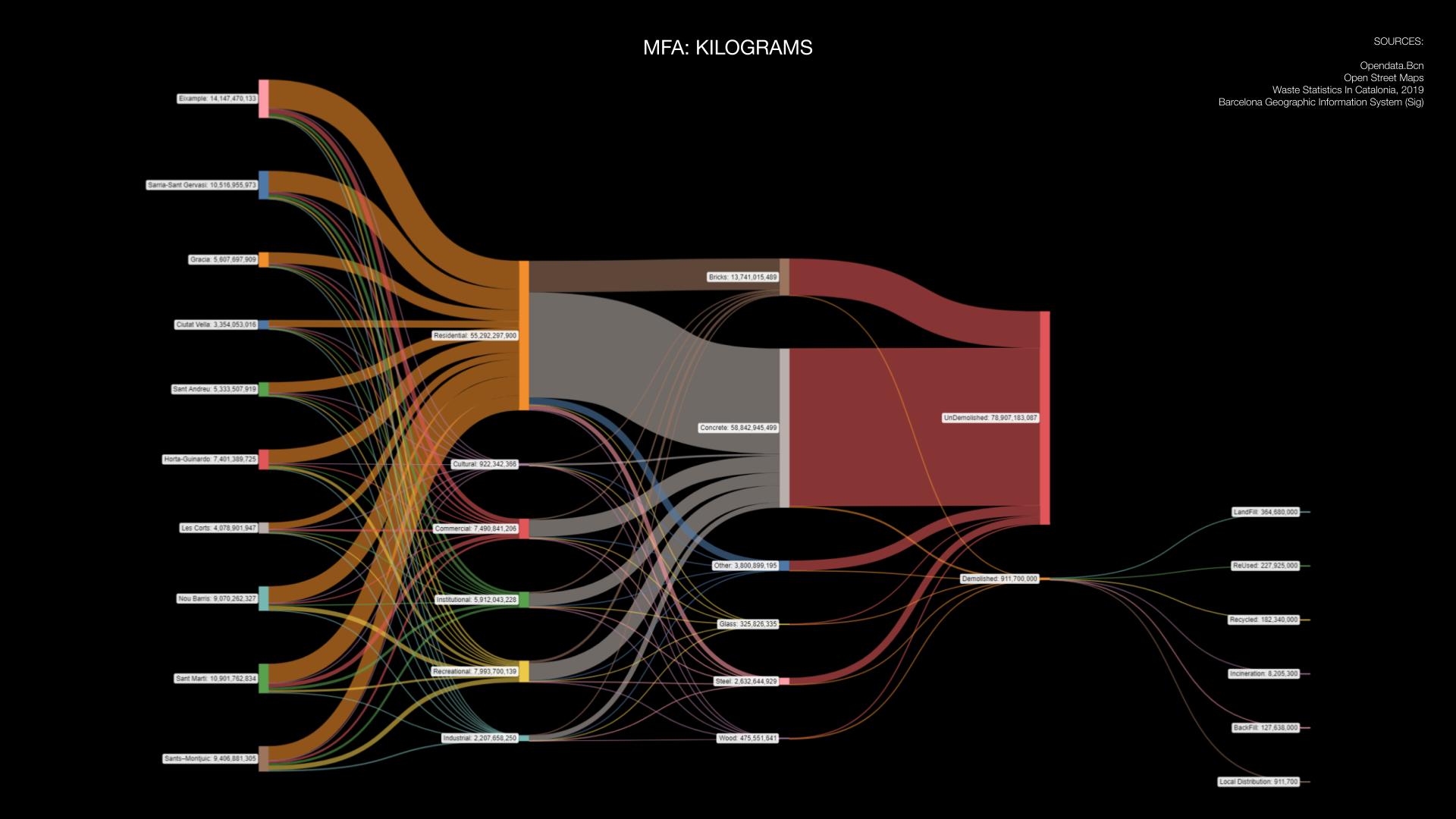

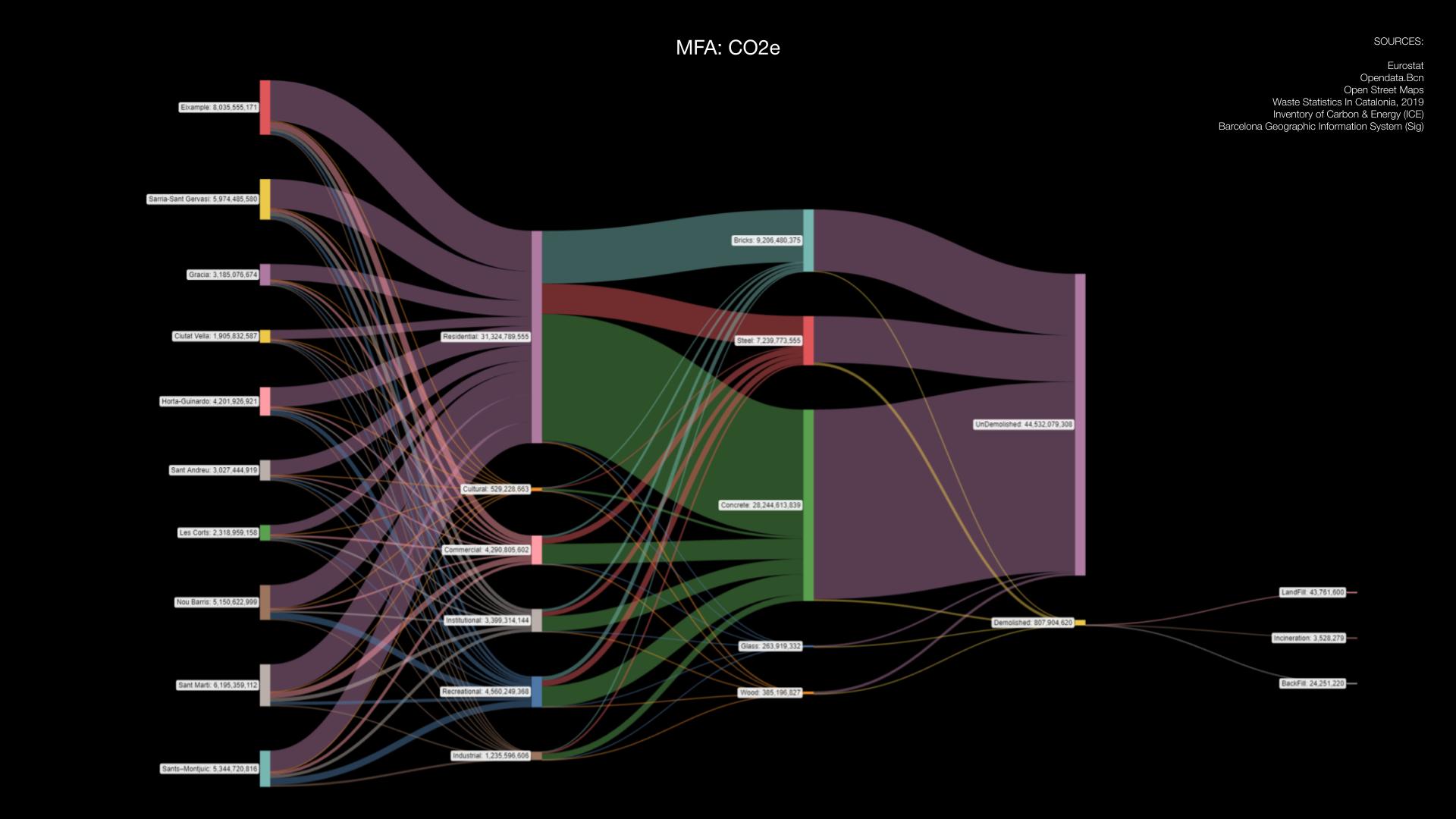
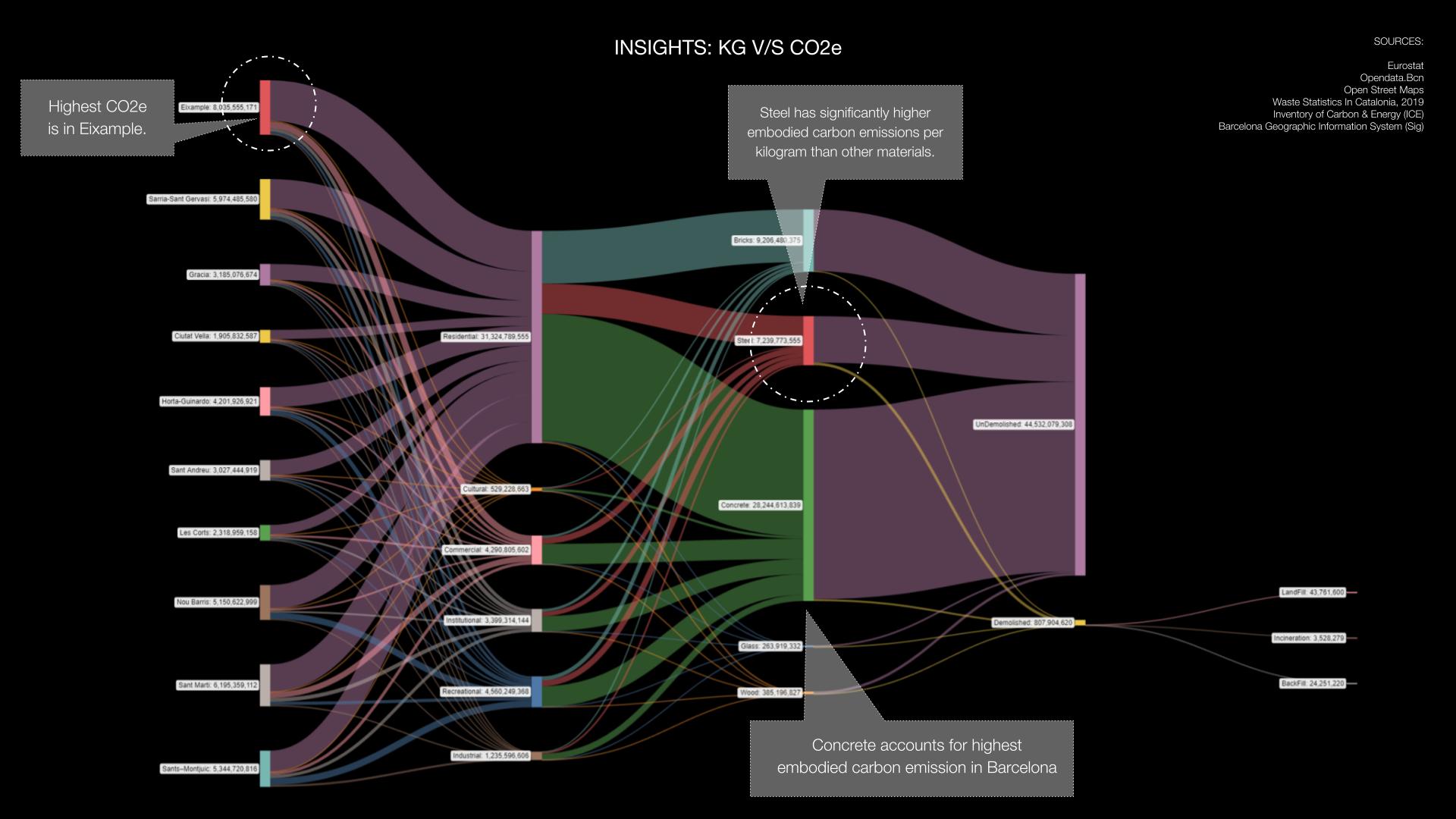
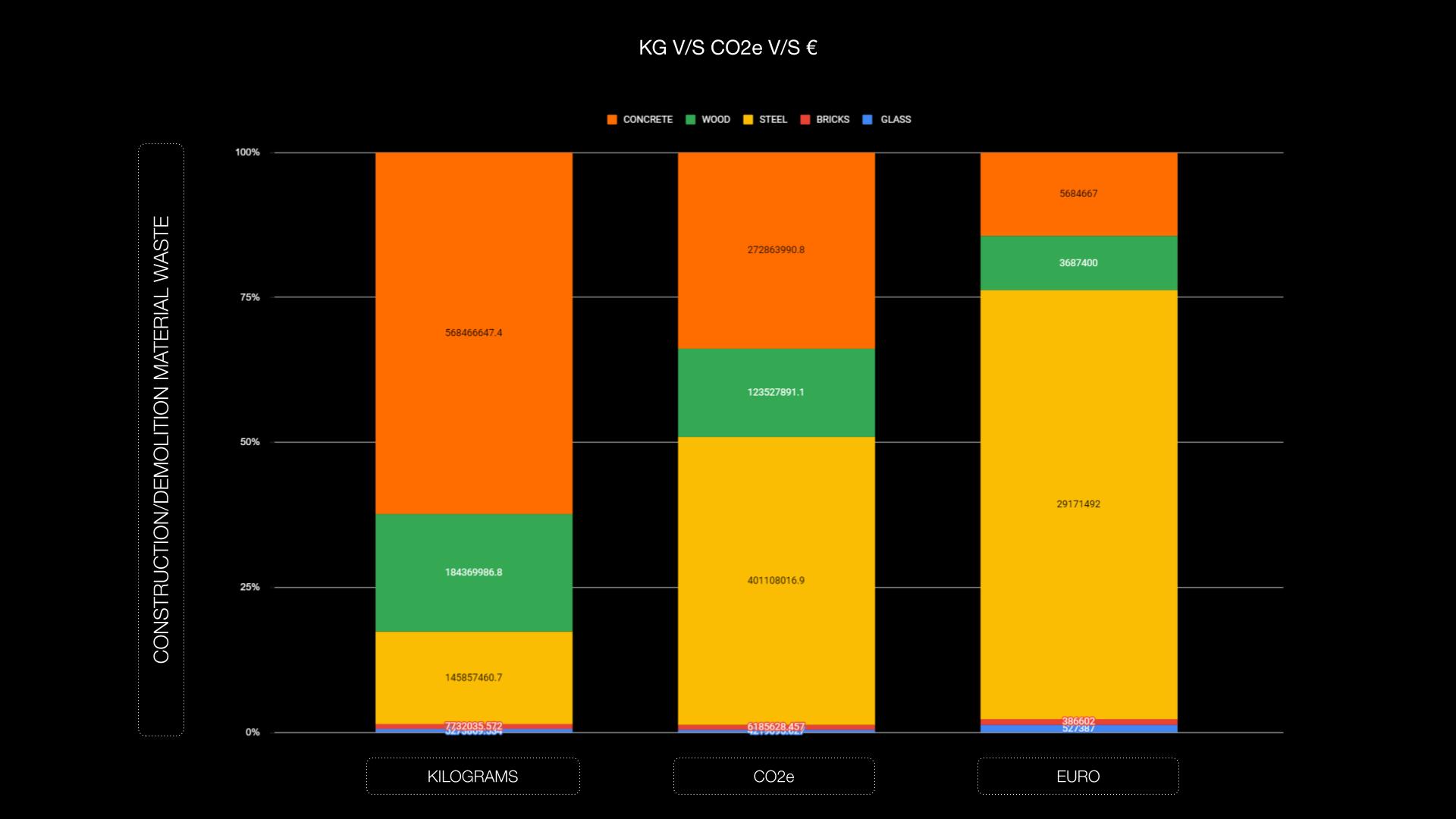
In addition to material analysis, the project delves into the waste management practices employed by Eixample for construction and demolition waste. It examines the existing, infrastructure in place, as well as the stakeholders involved in waste management processes. By evaluating these practices, the research aims to identify strengths and weaknesses, opportunities for improvement, and innovative strategies employed in waste reduction and resource optimization.
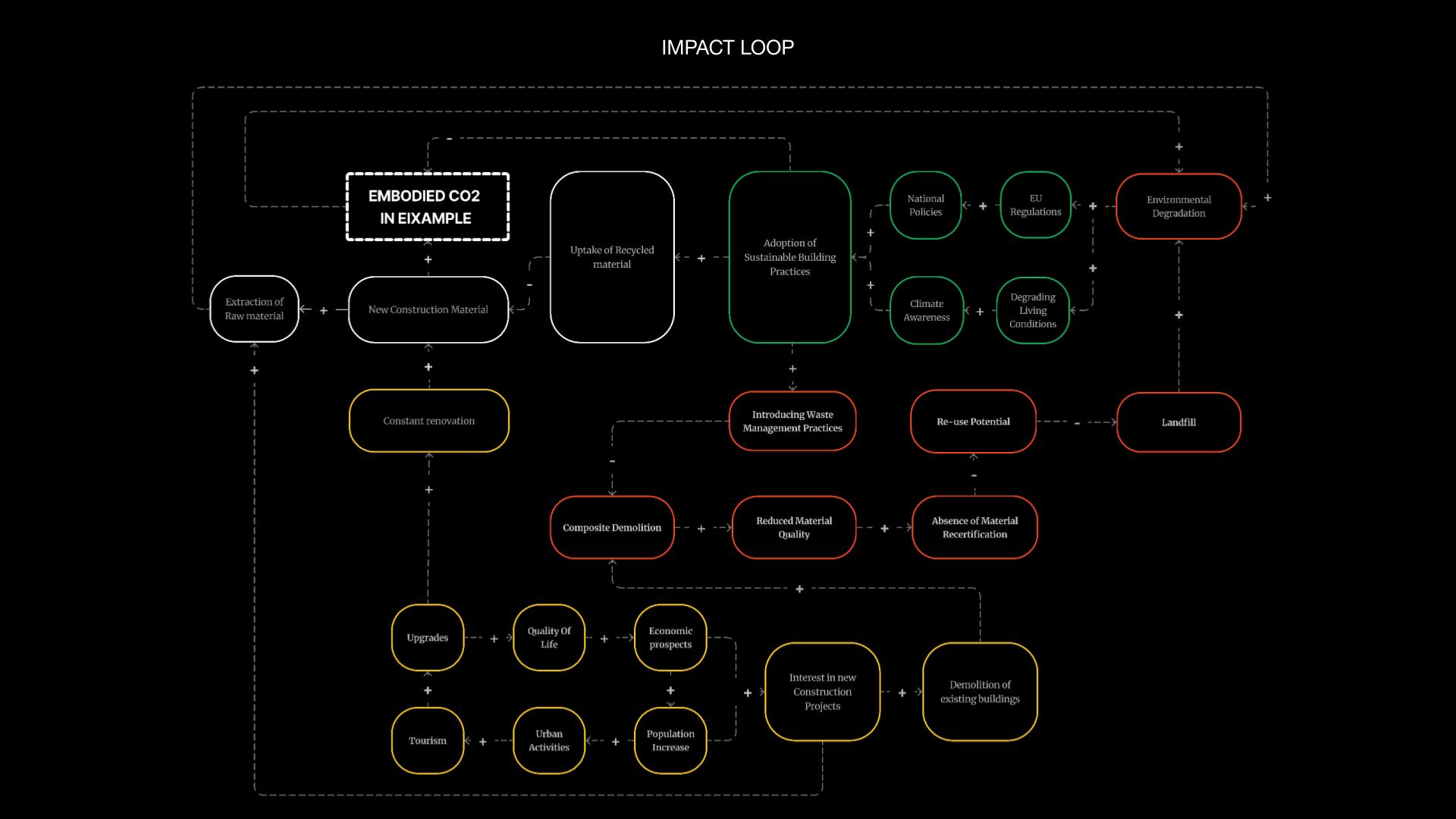

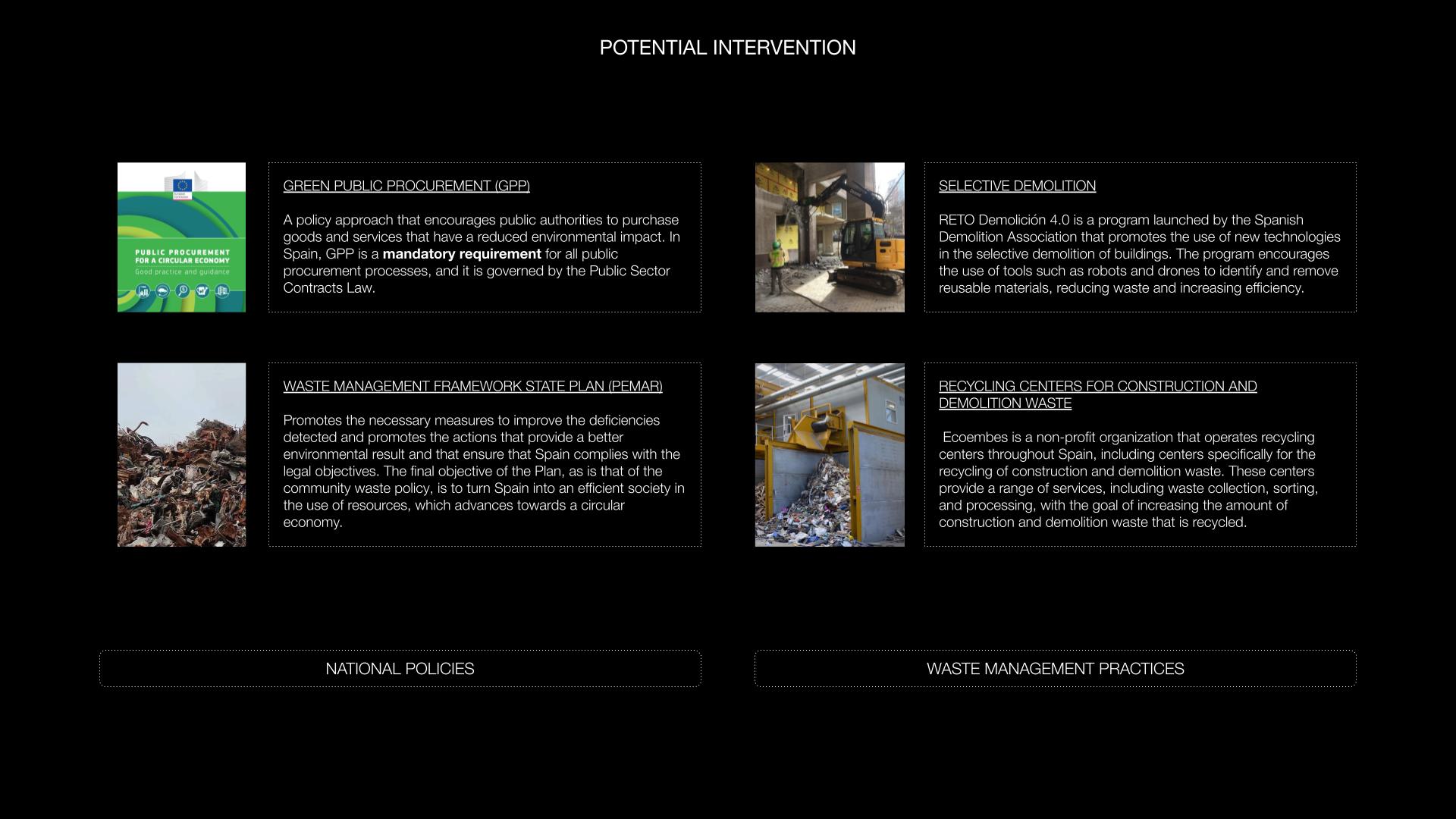

The findings of this research project contribute to the broader understanding of sustainable construction practices and waste management strategies. The insights gained from studying the environmental impact of construction materials, analyzing waste generation patterns, and evaluating waste management practices provide valuable information for policymakers, urban planners, and industry professionals. Ultimately, the research aims to promote sustainable practices in the construction sector, foster resource efficiency, and contribute to the development of more environmentally conscious cities.

